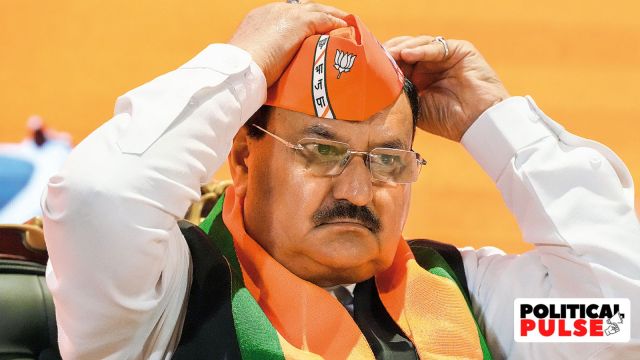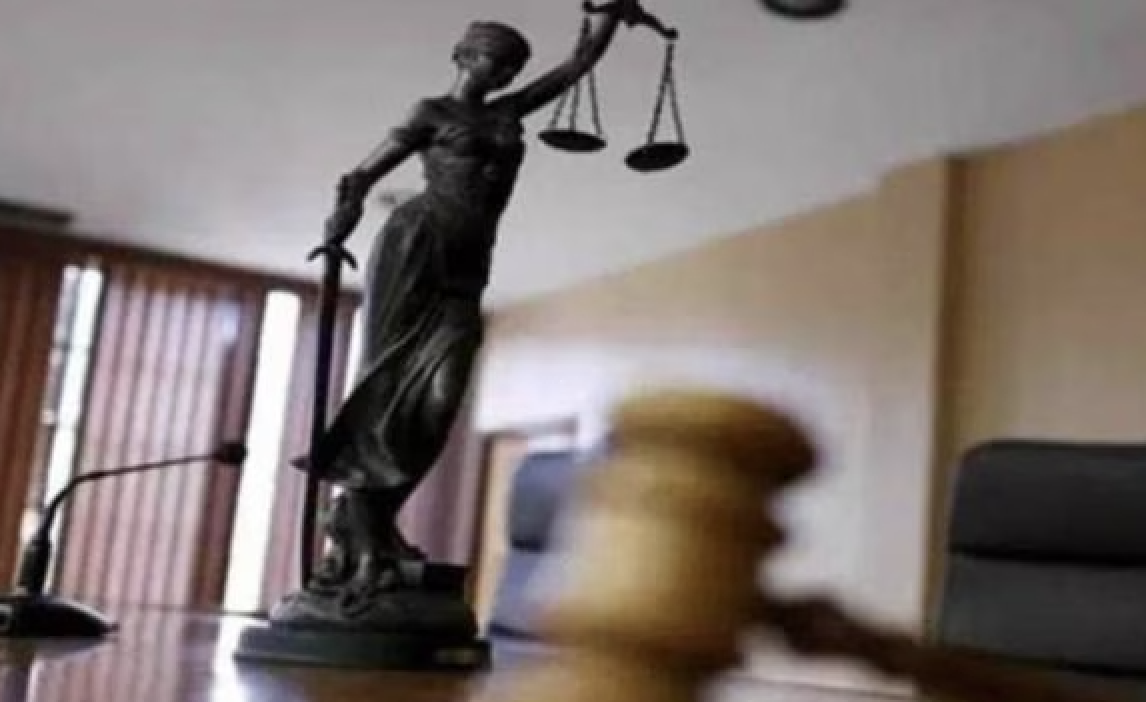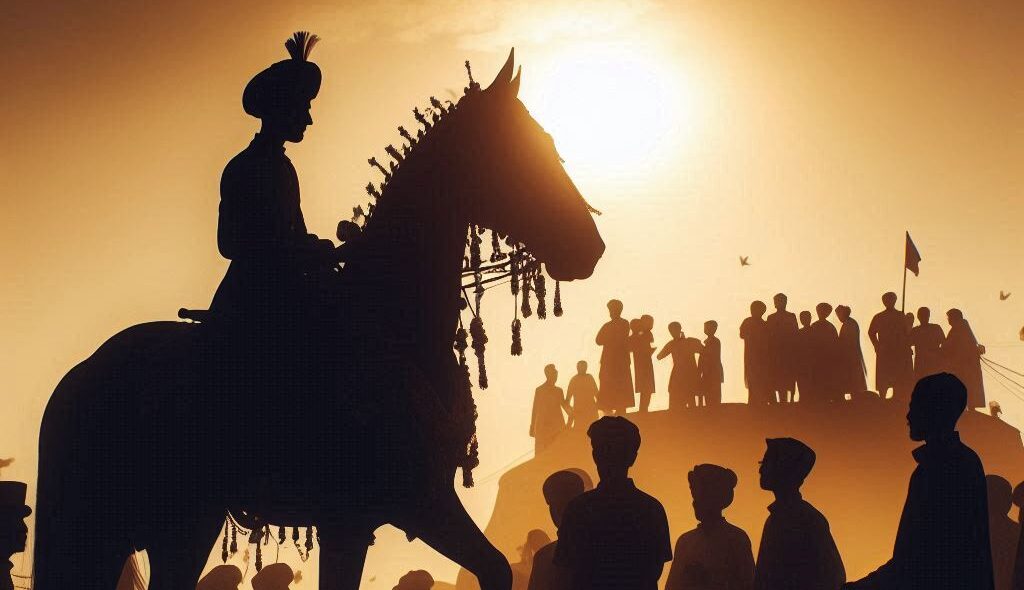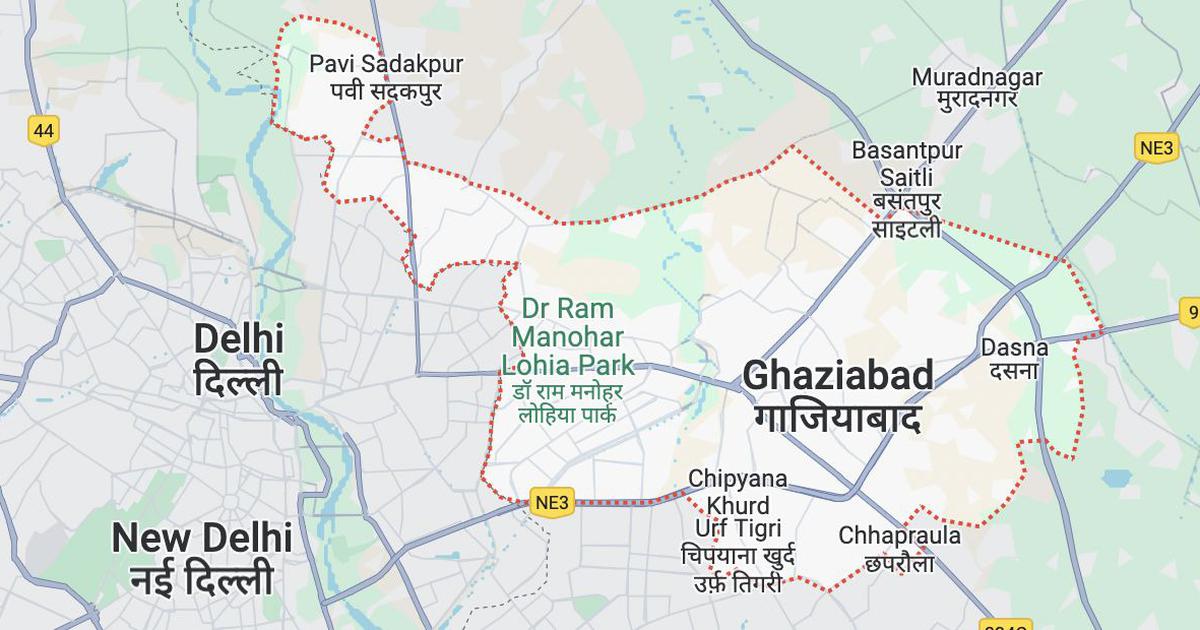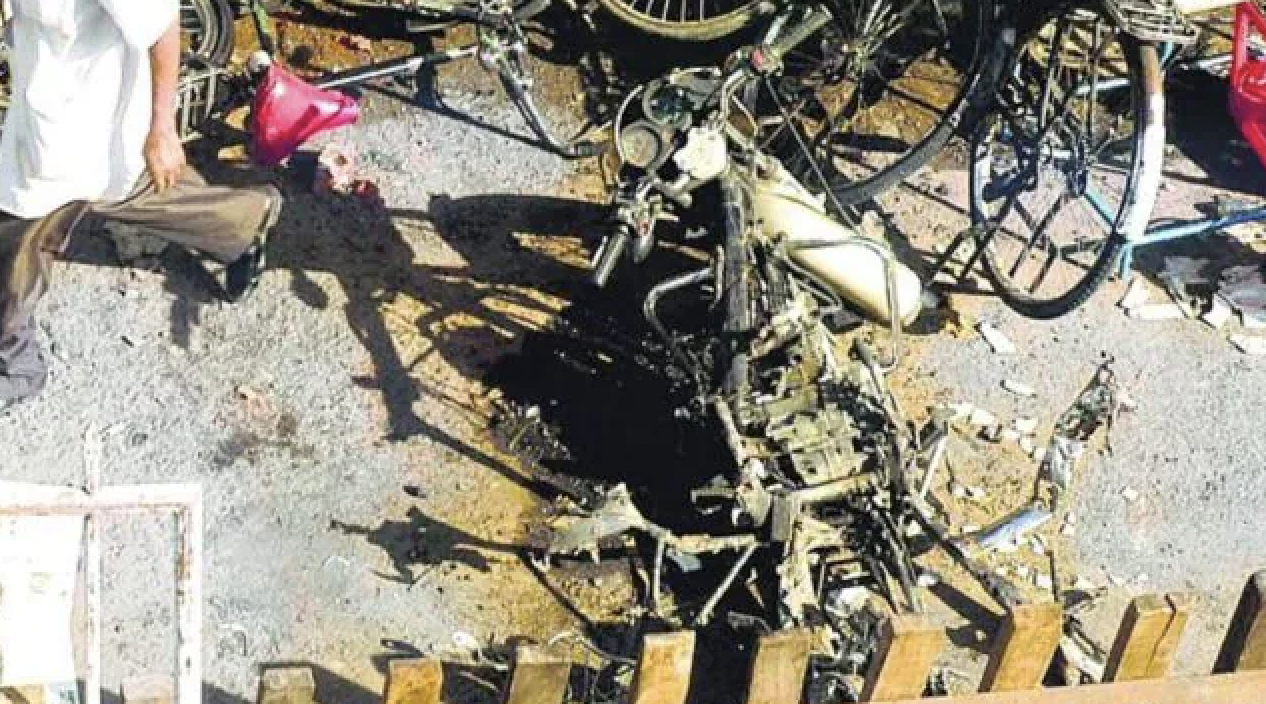
By GAFIRA QADIR
While sitting in a room crowded with mourners, Abdul Majeed Bhat spoke about his brother, Altaf Bhat, who was allegedly used as a human shield during a gunfight in Srinagar district. “He was innocent. He was a shopkeeper,” Majeed said on 16 November.
But Majeed said that there was no gunfight in Altaf’s complex where the forces had come for search. “He was taken thrice by the forces [as human shield] for checking and then at the third time, he was killed.”
On the evening of 15 November, the Jammu and Kashmir police said a gunfight had broken out between government forces and militants in Srinagar’s Hyderpora area. Initially, the police had claimed that during the gunfight, a militant and Over Ground Workers (OGWs) were killed but later said that they killed a militant and an OGW while two civilians were killed in a cross-firing.
The families of three killed people, however, alleged that their kin were used as human shields — a civilian used as a shield by the forces for their safe passage — and had no connection with militancy. The use of civilians as human shields is a common practice of Israeli Defense Forces in the occupied Palestinian areas and is considered a severe violation of international humanitarian law and the Geneva Conventions.
The change in the statement by the police came in response to the public outcry when Altaf’s niece Saima Bhat tweeted that his uncle was innocent. “You killed my innocent uncle Mohammad Altaf Bhat in cold-blooded murder In Hyderpora, you used him as a human shield and now saying he was ‘OGW’,” she tweeted. “Return us his body.”
“Return the bodies” had become a viral campaign after similar questions were raised on the authenticity of an alleged gunfight in Srinagar’s outskirts last December.
Last week, the bodies of the four slain were buried in a forest in north Kashmir’s Handwara. On 18 November, the families of Altaf and Mudassir Gul, another killed civilian, staged a sit-in protest in Srinagar’s press lane to demand the bodies of their relatives. They were detained by the police during the night and later released. The next day, two bodies were exhumed and returned to their families for last rites.
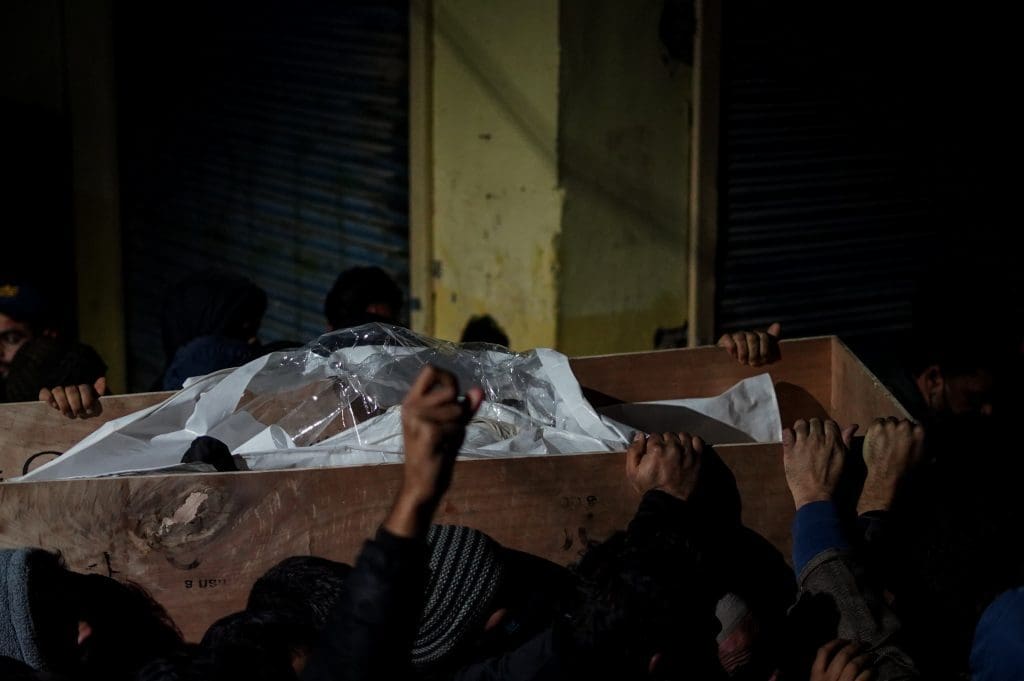
Altaf’s case has again put this rampant human rights violation by the government forces under the light. Multiple testimonies to Maktoob presented a fatal trend in forces’ operations in Kashmir.
Earlier this year, Major General Rashim Bali, the General Officer Commanding (GOC) of the south Kashmir-based army’s Victor Force, while responding to questions from locals at an event called “Mission Pehal” in Pulwama district, defended that the army use civilians as cover to ensure that no one makes complaints against the army’s conduct later.
Mehbooba Mufti, the former chief minister and president of the People’s Democratic Party (PDP) said in a tweet: “Using innocent civilians as human shields, getting them killed in cross-firing & then conveniently labeling them as OGWs is part of GOIs rulebook now.”
On 9 April 2017, Major Leetul Gogoi tied Farooq Dar, who was working as a sweeper in the Health Department, to the bonnet of an army jeep as a shield against heavy stone-pelting in central Kashmir’s Budgam district during Lok Sabha elections. The photograph of the incident not just sparked outrage in the Valley but left the 28-year-old Dar in distress. However, it did not stop the forces and such incidents still continue.
Over a month later, Major Gogoi was awarded for his “sustained efforts” on counter-insurgency by the military while the Chief of Defence Staff Bipin Rawat applauded the use of Dar as a human shield.
On 16 May 2019, two brothers, Younis and Rayees, from Pulwama district were picked up by 44 Rashtriya Rifles (RR) and a Special Officers Group (SOG) of Jammu and Kashmir police before dawn to help the forces locate a house in the village. At the end of the search operation, Younis was injured and Rayees was killed.
Two years later, nothing changed in the district. The government forces still use the civilians to search the militants before the start of a gunfight between them and militants, Maktoob found.
Decades-long uncertainty
“Sisterfuckers, motherfuckers, bastards… walk in the line,” Amir Niyaz* vividly remembers the forces abusing and shouting at the civilians. As he explains the moment, he and nine other men were walking in two straight lines shielding the government forces in south Kashmir’s Pulwama district.
It was 4:30 pm and the forces had cordoned off the village on 25 August this year.
Niyaz, 23, was resting after returning home from his job when a couple of army men raided his house. Such knocks are common in Niyaz’s village but it was the first time when they had come to take him for a search operation as a “human shield.” “When I went outside the door of my house, I was frightened because there was uncertainty. I didn’t know if I would return alive,” he said to Maktoob, wishing anonymity. “I was scared.”
Although Niyaz’s mother requested the army men to let him go and held a tight grip on her son’s hand, it was in vain. “They [forces] threatened me to shut my family up, otherwise, they would kill them,” he said. “I then left with them.”
“Even though they have weapons and bulletproof jackets, they still use us [to cover them]…which clearly means we have become a shield for them,” said Niyaz.
At a distance of 100 meters away from his home, Niyaz was ordered by the army men to search a house and check if there were three militants there, as per their input. He had denied. “I told them that I get scared and I won’t do it,” Niyaz recalls.
To avoid further delay, the forces asked four other civilians to search the house thoroughly and return after keeping the doors and windows closed. “They [forces] would bring civilians [like a shield] forward on a gunpoint and would stay behind them,” Niyaz said. “They keep us as a human shield to keep themselves safe because they are really scared.”
For Niyaz, the forces take cover from the civilians so that “if anything happens, civilians will die and they (army men) will survive.” He believes that there was a possibility of getting killed by either a bullet of militants or forces during the search, but the civilians are helpless.
Trauma
During the night, Niyaz lives in paranoia. Some nights, he suddenly wakes up; shivering, palpitating, and drenched in sweat. “I have constant fear and anxiety of experiencing the same thing again,” he said.
Whenever he hears a noise or a sound of a vehicle outside his residence, he grows restless. “I get up and start hiding because I feel like it’s them [forces] and they will pick me up again,” he said. “They can raid your house anytime. I feel very scared now.”
As he recalls the day, he said, ten civilians were being “abused” and “humiliated.” “They don’t talk without abusing us, our mothers and sisters,” Niyaz sighed and said he felt humiliated when the forces abused and beat his family.
During their detention, the civilians were scared. Niyaz’s heart was pounding. Maktoob talked with four other people in south Kashmir who had the same story to share as him but refused to go on record for fear of repercussions.
When the civilians were helping the army men with the search operation, they felt nervous, he said. “We get nervous in this situation and it’s obvious. But they don’t understand. They said we are not police, we are army; we don’t detain but we shoot the person. Keep this in your mind.”
Ever since the incident, Niyaz has not felt safe even inside the warmth of his home. He has been returning home late from his job. “It feels like they must be waiting at home to take me with them again. So, I returned late to save myself from being taken away,” he said. “We are not safe here [in Kashmir]…if we raise our voice, nobody will listen.”
While Niyaz doesn’t understand why the forces use civilians as human shields, 32-year-old Ghulam Nabi, who too was picked up by the forces two days before him, does. “They do it because they rule this place, they are in power. They will do whatever they like, what can we do?” said Nabi.
Nabi was out for a walk when the forces had launched a cordon in his village. “An army man called me, they took me with them,” he said to Maktoob, adding that the forces gathered 17 civilians and picked whoever crossed their path.
Then the forces, said Nabi, divided them into groups of 5 and told them to search the area in different directions. “They stayed outside while we were sent inside the house to check if there was anyone,” he said. “When I was taken by them as they held my hand, I thought I would never return home.”
At the house that the civilians were to check, forces had “pointed guns at us and told us to run towards the house and return quickly after searching it thoroughly.”
“They said if we would lie about what was inside, they would kill us all,” said Nabi. “We had no safety. If there would have been anyone in the house, we wouldn’t have been alive by now.”
For him, returning home alive felt like he was born again. However, it did not stop at the forces, he said. “Then they took my brother’s son the next time,” Nabi added.
The constant thought that bothers Niyaz is “if this is our life here then we are better off dead,” he said. “I wouldn’t want to live a life where I face humiliation every day and die every day without any reason.”
This story first appeared on maktoobmedia.com


